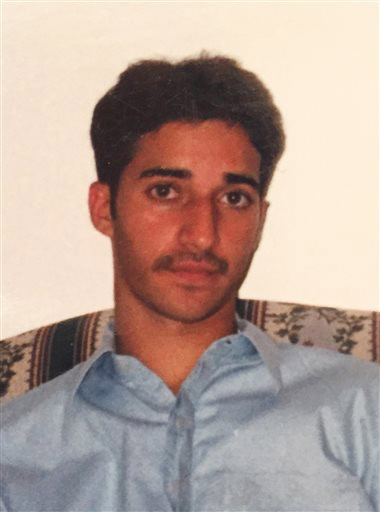
A body in a park, scant evidence and a life sentence. There’s a lot to uncover in “Serial,” a weekly podcast that has amassed a huge fan base over the last couple of months.
A production of WBEZ Chicago, “Serial” follows host Sarah Koenig as she delves into the 1999 case of Adnan Syed, a then-high school senior who was convicted of murdering his ex-girlfriend, a crime he denies knowledge of, and sentenced to life imprisonment. Koenig first learned of the case over a year ago and has since recorded her investigation, inviting people to listen in on her progress. Along the way, she rehashes old questions, asks new ones and follows leads never before pursued by the prosecution or defense. Throughout the course of the program, Koenig is in correspondence with Syed, as well as a laundry list of old classmates, as she tries to uncover the truth behind his character. Is he really an innocent man robbed of his freedom, or is he more manipulative than he seems?
“Serial” melds the love of watercooler gossip with a gripping murder mystery that asks: If not Syed, then who? Does the absence of other suspects and a loose testimony from a drug dealer indict Syed, a well-respected and well-liked high school senior, of murder beyond a reasonable doubt? Everyone has their own opinions and their own interpretation of the evidence. In a way, every listener is playing the part of an amateur detective ensuring that no stone goes unturned.
The podcast also raises several other provocative questions involving the psychology of memory. It was six weeks before they arrested Syed. Can you remember what you were doing exactly six weeks ago? Koenig notes that people are more likely to remember days bearing special significance, so if we look at Syed’s testimony and presume innocence, can we really expect him to remember a day that might have been a normal one?
An innocent Syed wouldn’t have known about his ex-girlfriend’s murder. Her body didn’t turn up for a month. On the other hand, one can argue that knowledge of his ex-girlfriend’s disappearance ought to have stood out more starkly in his memory. There is no right answer here, only conjecture.
“Serial” has become more than just a podcast and more than just a story. It’s become an active community, engaged in following the case through to some definitive conclusion. After Koenig asked the audience to fund a second season, which would feature a brand new story, the asked amount was reached within a week. “Serial” is looking less like a fad and more like a rebirth of the podcast. It’s already topped the charts on iTunes, setting a record high for streams and downloads, and could signify an emerging market for the return of old-time radio storytelling. The very fact that it’s free to listen to only helps open it up to a wider and more excited audience. Koenig might just determine that Syed is truly guilty, but I guess we’ll just have to keep listening to find out.


